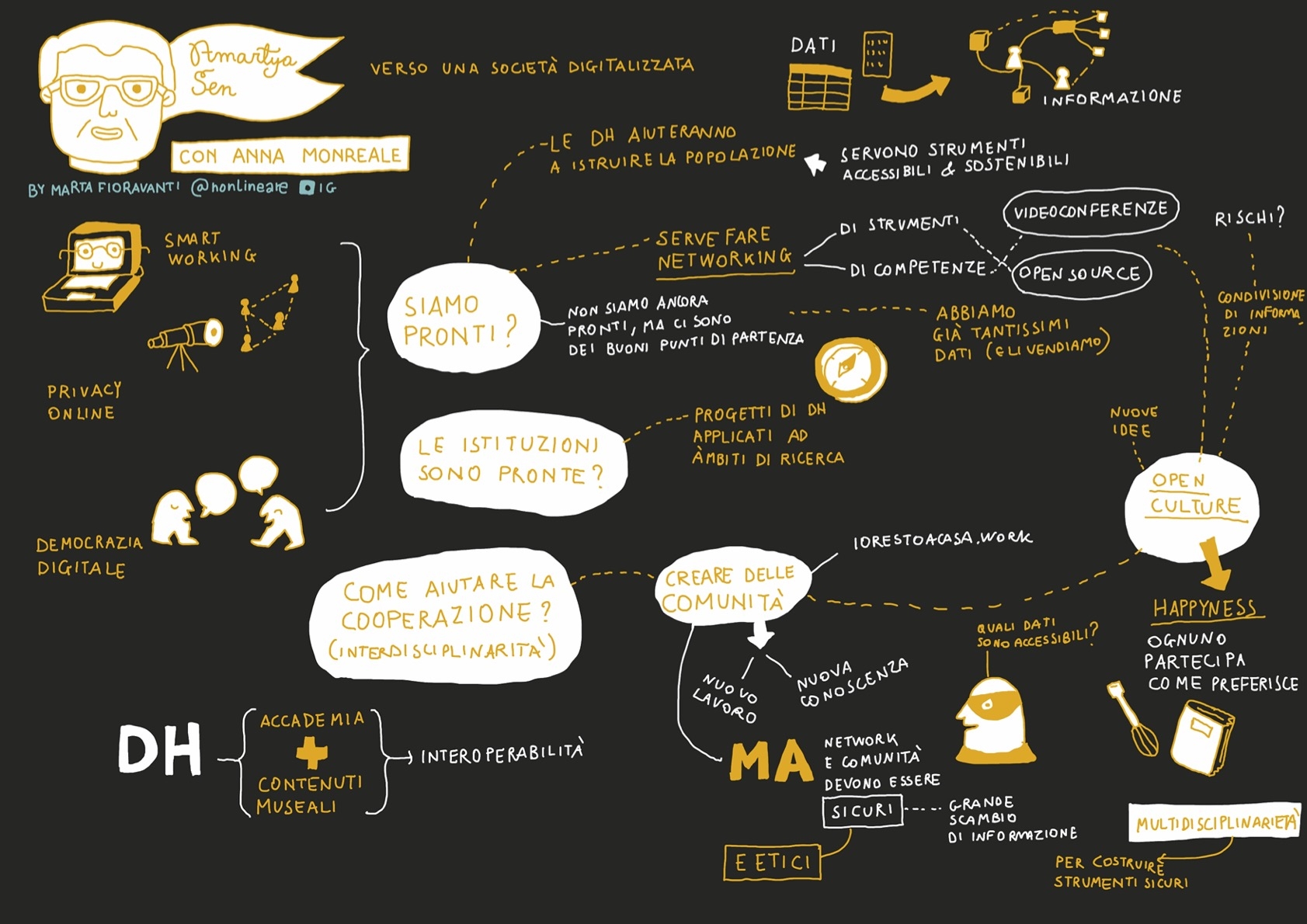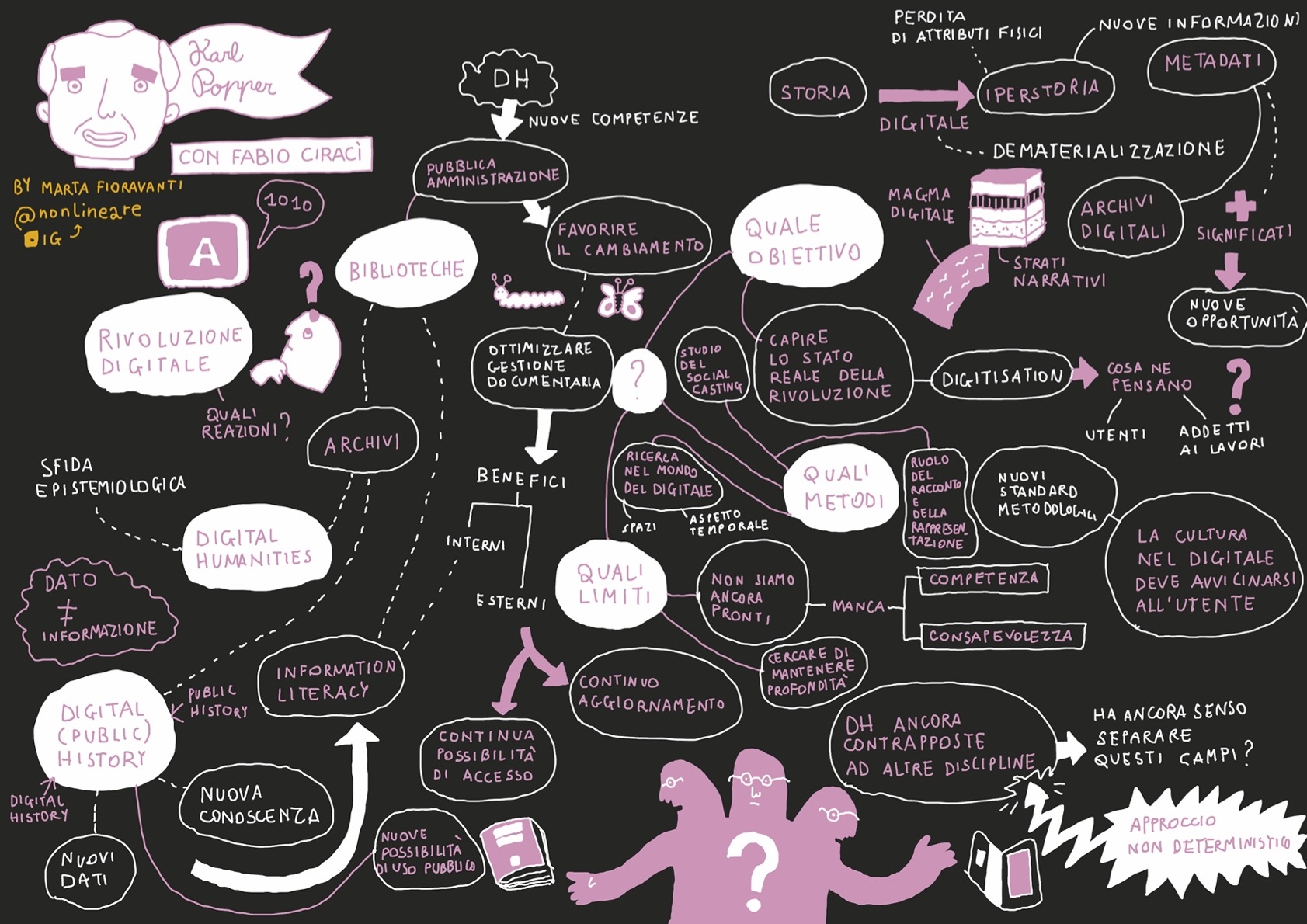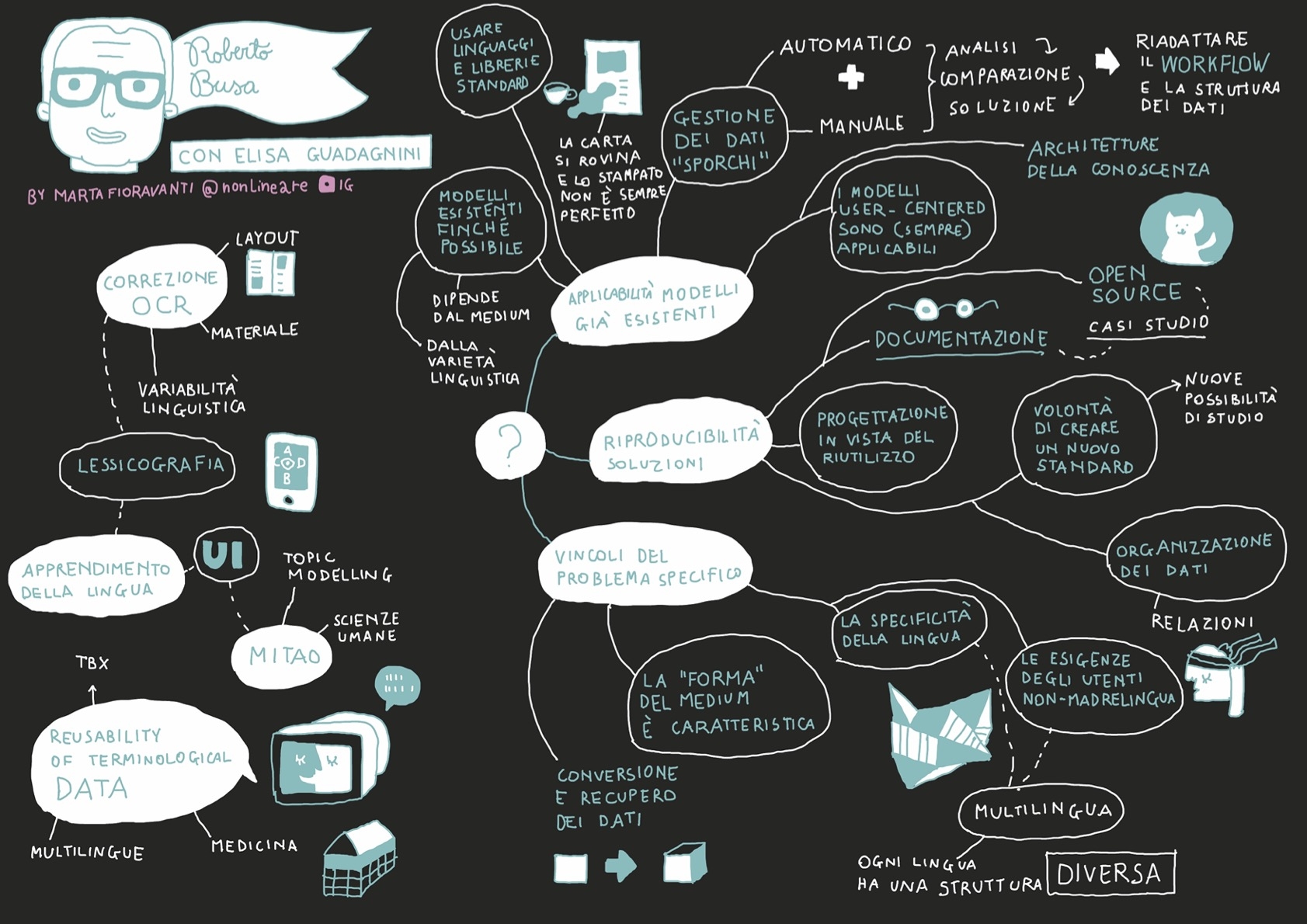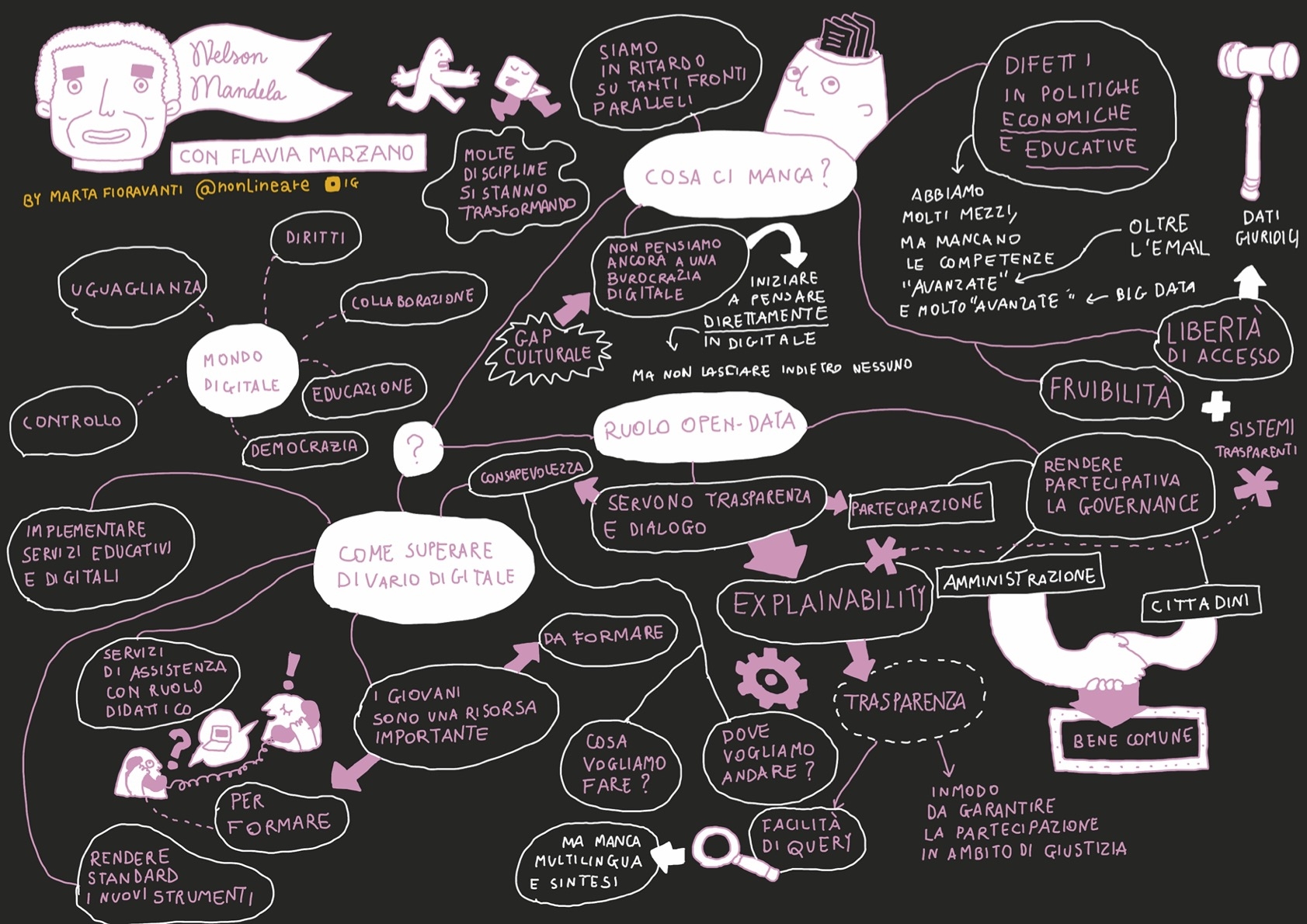Blog post written by Francesca Frontini and Monica Monachini about the online AIUCD conference held on 19 - 22 January 2021. The 2021 edition was organized by Università di Pisa, ILC-CNR, ISTI-CNR and CLARIN-IT, with the support of CLARIN ERIC.
AIUCD stands for "Associazione per l'Informatica Umanistica e la Cultura Digitale", in English "Association for Digital Humanities and Digital Culture"; it is a landmark of Italian DH, as well as an ADHO association. Its mission is to foster methodological and theoretical research, scientific collaboration and the development of shared practices, resources and tools in the Digital Humanities, as well as digital applications in all humanities disciplines. Additionally, AIUCD seeks to stimulate reflection on the theoretical foundations of computational methods in internet culture.
AIUCD and CLARIN-IT
The 2021 edition of AIUCD titled "DHs for society: e-quality, participation, rights and values in the digital age" was originally planned to be held in Pisa. As CLARIN is of relevance to the AIUCD community, CLARIN-IT was able to be part of the programme committee and the overall conference support. A keynote by a CLARIN member was also foreseen from the beginning.

CC-BY Marta Fioravanti
However, in October 2020 it became clear that the ongoing COVID situation would not be solved before January, and when CLARIN announced its new programme of support for virtual events, National Coordinator of CLARIN-IT Monica Monachini and AIUCD2021 PC members, immediately applied for CLARIN support. Thus, the adventure began and AIUCD was to be the inaugural event of this new CLARIN instrument.
Participants
As for the attendance (free of charge), the registered participants were over 600, mostly from Italy but also from other European countries and South America, mostly academics but also students and teachers, with an average of at least 100 connected persons for each day of the conference.

CC-BY Marta Fioravanti
The scientific programme
Coming now to the scientific programme, the conference was a bilingual event, with contributions in Italian and English by leading scholars of the field.
19 January 2021 (workshops)
The first day was dedicated to workshops, which included
- a tutorial of the EVT tool for digital editions;
- a workshop on digital culture by students from the DH master of the University of Pisa;
- a CLARIN café dedicated to the CLARIN-IT (This is CLARIN, how can we help you?), that was attended by over 60 people;
- a last workshop on Born Digital Literary Archives.
20 January 2021 (conference day one)
The first day of the conference was opened by the University of Pisa rector, and kickstarted by the first keynote speaker, Giuseppe Attardi professor of Computer Science at the University of Pisa, with his interesting talk about digital economy. The four paper sessions of the day touched upon issues of open access and FAIR data, accessibility, e-health, and cyber democracy.
21 January 2021 (conference day two)
On day two, the keynote was CLARIN director Franciska De Jong, who presented CLARIN ERIC and its latest developments, with a particular focus on FAIR data. The day's topics were digital editions and archives, e-learning, hypermedia.

CC-BY Marta Fioravanti
22 January 2021 (conference day three)
Day three opened with the third keynote by Andreas Fickers, from the Luxembourg Centre for Contemporary and Digital History with a talk on "Digital Public History – a plea for a reflexive turn". Topics were digital culture, philosophy, e-democracy and social media studies.
Every day was closed by a wrap up by a member of the Scientific committee, and the whole conference was closed by the local chair Enrica Salvatori and the AIUCD president, Francesca Tomasi.
Conference interactions
During the conference discussions were lively, both on camera and in the Zoom chat; tweets were also numerous under the #AIUCD2021 hashtag. Some continued after the conference on the AIUCD list, and an article on a national newspaper gave the event an even broader visibility.
Recordings of the conference and workshops will be soon available online.

CC-BY Marta Fioravanti
Scientific and outreach point of view
From the scientific and outreach point of view, it was an opportunity for CLARIN ERIC and CLARIN-IT to gain a greater visibility within the lively Italian DH community, at a time when topics relating to the vision of open science, and FAIR data are becoming more and more relevant (see Di Donato, Dumuchel, Monachini & Pohle and Frontini & Khan in the conference proceedings).
It has to be noted that the CLARIN-IT café was held exactly a week before the deadline for submitting national research projects in Italy; indications on how to refer to CLARIN and the Italian ILC4CLARIN centre in data management plans were thus explicitly provided to the audience during the café.
Organizational point of view
The planning of the virtual event began with the help of the CLARIN office under the supervision of Maria Eskevich. The model successfully applied to the virtual CLARIN 2020 conference was chosen, with some minor changes, e.g.: the greetings of organisers and AIUCD chairs were pre-recorded and published as "teasers"; during the conference, a graphic artist made creative visualisations of the discussions, that all participants could see being live drawn. Great care was bestowed upon the careful planning of the technical and logistic aspects, such as the succession of speakers and the use of parallel rooms, which was implemented using the Zoom platform offered by CLARIN and the expertise of the CLARIN office. Careful instructions (including a how-to video) were sent to participants, paying attention to provide all the information. All this allowed for an almost flawless execution of the virtual event, as it was acknowledged by the participants.
From the organizational point of view, it was a great opportunity for the CLARIN Office to stress test and improve the model used for the CLARIN conference virtual edition in 2020, and to see whether it was replicable and applicable to different contexts. The results are definitely positive, and the collected useful feedback will allow CLARIN to organise even better virtual conferences in the future. Crucially, the CLARIN Office will be able to provide adequate how-to documentation, so that future applicants will be more autonomous in the efficient planning of their event.